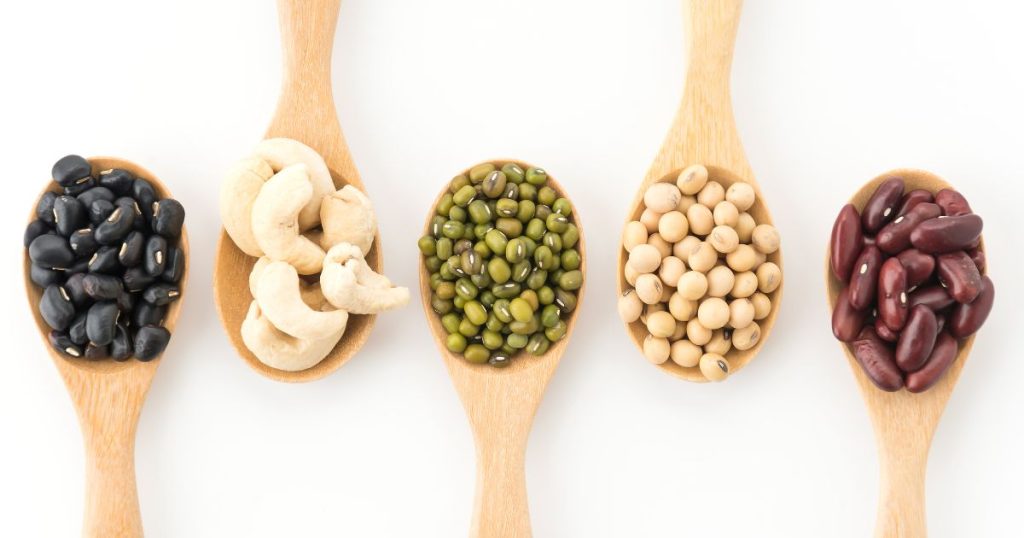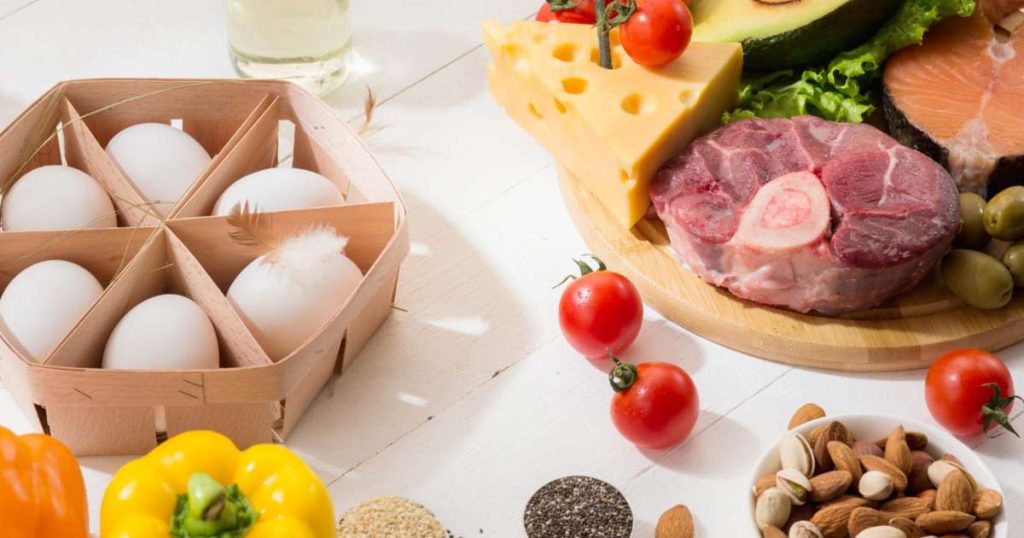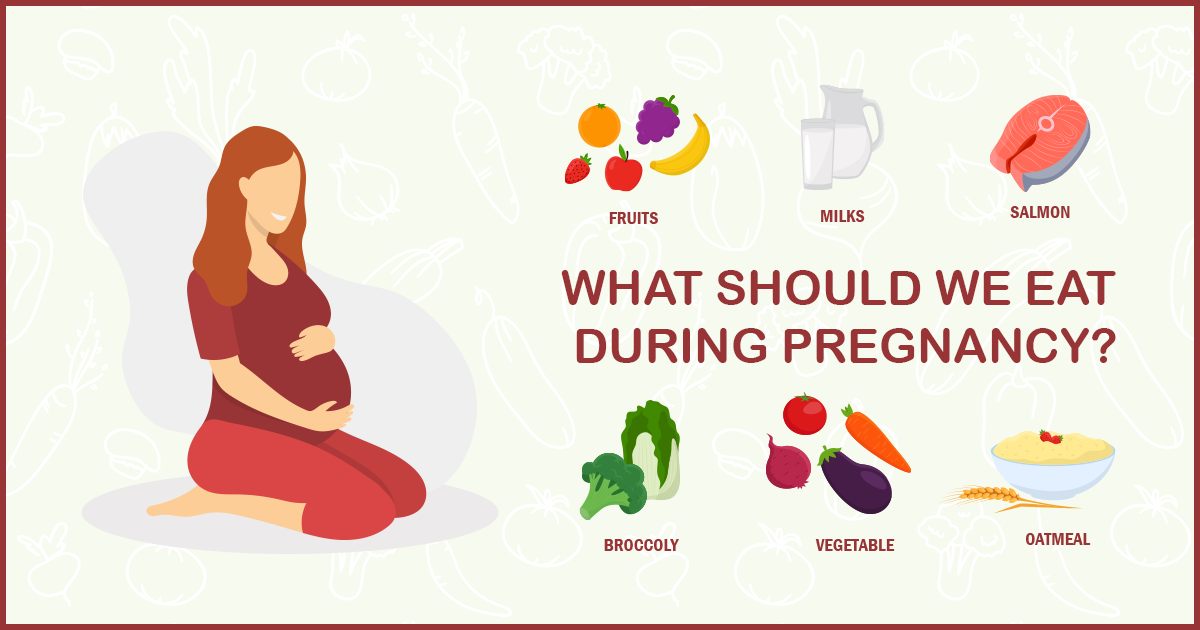Childbearing is a crucial period when you need to take your health seriously. It’s important to think and plan about what to eat during pregnancy. A healthy and nutritious diet matters a lot in keeping the baby well-nurtured from the time to conception.
When building a healthy diet plan, it’s vital to focus on whole foods that provide higher amounts of the good stuff you’d need when not pregnant, such as:
- Complex carbohydrates
- Minerals and vitamins
- Protein
- Healthy types of fat
- Fluids and fibers
Here are some of the nutritious foods to consume when you are pregnant to make sure you are eating healthy.
Foods To Eat During Pregnancy:
1. Dairy Products
The first on the list to eat during pregnancy are dairy products. During pregnancy, calcium and protein-rich foods are essential to meet your baby’s needs. Dairy products, including:
- Yogurt
- Milk
- Cheese
The products normally contain two types of high-quality protein: whey and casein. Dairy items are the best source of calcium. Additionally, it provides zinc, phosphorus, magnesium, and B vitamins.
2. Salmon
Salmon contains omega-3 fatty acids and has a lot of benefits. Omega 3 helps to build the eyes and brain of a baby and may also help to increase gestational length. there are some pregnancy foods to avoid, including some seafood due to mercury and other contaminants. However, anchovies, salmon, and sardines are safe to eat.
3. Legumes
One of the most important foods to eat during pregnancy is legumes. Legumes are great plant-based sources of calcium, fiber, iron, protein, and folate. Folate is the most vital B vitamins (B9). It is very essential during the first trimester and even before. Include the following legumes in your diet during pregnancy:
- Chickpeas
- Peanuts
- Lentils
- Soybeans
- Peas

Legumes tend to be rich in fiber, and some are rich in iron, potassium, and magnesium. Consider counting legumes to your diet with meals like hummus on whole grain toast, lentil curry, or black beans in a taco salad.
4. Dark, Leafy Greens and Broccoli
Broccoli and leafy, dark, and green vegetables, such as spinach and kale, have many nutrients that are vital during pregnancy. If you don’t like the taste of these, you can add them to pasta sauces, soups, and more.
There are many benefits, including potassium, calcium, folate, iron, fiber, and vitamins A, C, and K. The fiber content helps to prevent constipation. Also, leafy greens are linked to a reduced risk of low birth weight.
5. Eggs
Eggs are one of the most nutritious foods that you can eat during pregnancy. An egg contains about 3.6 g of protein, 71 calories, fat, and many more minerals and vitamins. Eggs are an outstanding source of choline, a vital nutrient. It’s essential in a baby’s brain development and also helps to prevent developmental abnormalities of the spine and brain.
A single egg contains roughly 147 mg of choline, which will keep you closer to the current recommended choline intake of 450 milligrams per day while pregnant, though many studies are underway to determine if that is enough or not.
6. Proteins and Lean Meats
Lean beef, chicken, and pork are great sources of high-quality protein. Beef and pork are also rich in choline, iron, and other B vitamins. Iron is used by red blood cells as a part of hemoglobin. Iron is needed since the blood volume increases, especially during the third trimester.

Lower levels of iron during early and mid-pregnancy can cause iron deficiency anemia, which raises the risk of low birth weight and other complications. If you develop an aversion to meat or follow a plant-based plan, it can be hard to cover your iron needs with only meals. However, for people who can, lean red meat can help to increase the amount of iron you are getting from food.
7. Whole Grains
Unlike their refined copies, whole grains are packed with plant compounds, fiber, and vitamins. Think barley, quinoa, wheat berries, oats, and brown rice instead of white rice, white bread, and pasta.
Some whole grains, like quinoa and oats, also contain a good amount of protein, as well as fiber, B vitamins, and magnesium. You can indeed add this to the list of foods to eat during pregnancy.
8. Avocados
Avocados have monosaturated fatty acids, which are suitable to eat during pregnancy. These fatty acids help to make this food taste rich and buttery, which is perfect for adding creaminess to a meal. They also provide B vitamins (especially folate), antioxidants, potassium, fiber, copper, vitamins C, E, and K.
Healthy fats help to build the skin, brain, and tissues of the baby, and folate may help to prevent neural tube defects. Also, it prevents developmental abnormalities of the spine and brain, such as spina bifida.
9. Berries
Berries provide antioxidants, water, vitamin C, healthy carbs, and fiber. Also, they have relatively low glycemic index values, so they should not cause considerable spikes in blood sugar levels.
Berries can be a great snack that you can eat during pregnancy, as they contain both fiber and water. They also provide a lot of taste and nutrition but with relatively fewer calories. Some of the best berries you can eat are:
- Blueberries
- Goji Berries
- Acai berries
- Raspberries
- Strawberries
10. Fish Liver Oil
Fish liver is basically made from the oily liver of fish, usually from cod. It is rich in the omega-3 fatty acids DHA and EPA, which are vital for eye development and the fetal brain. It is also very high in Vitamin D. If you don’t eat seafood, fish oil may be beneficial for you during pregnancy.
A tablespoon of fish liver oil, which is 4.5 grams, provides 11 micrograms of vitamin D. Also, 1,350 micrograms of vitamin A, which is around 150% of a patient’s daily needs. Consult your healthcare provider before consuming fish liver oil or other omega-3 supplements because too much vitamin D or A can be harmful.
What Not To Eat During Pregnancy?
It is important to have a healthy diet during pregnancy to nourish both the unborn baby and the mother. You may have to say goodbye to some of your favorite foods, such as coffee, sushi, or rare steak. Fortunately, there are a bunch of foods you can eat during pregnancy to keep yourself and the baby healthy. Here is the list of beverages and foods to avoid when pregnant, including:
- High mercury fish
- Alcohol
- Undercooked or raw fish or meat
- Raw eggs
- Caffeine
- Deli and processed meat
- Organ meat
- Unwashed vegetables and fruits
- Raw sprouts
- Soft cheeses
- Unpasteurized dairy items
- Contaminated drinking water
Final Line
A mother and an unborn baby need nutrient-dense food items from a nutritious and healthy eating plan of lean proteins, whole grains, healthy fats, fruits, and veggies. We have mentioned a full list of food items that you can eat during pregnancy. Additionally, there is a list of foods that you should avoid during pregnancy.
Frequently Asked Questions (FAQs)
Some of food that you can avoid are undercooked or raw meat or fish, raw sprouts, soft cheeses, unpasteurized dairy items, and raw eggs among others.
Citrus, banana, kiwi, watermelon, apple, and berry are some of the healthiest fruit options you can opt during pregnancy.
Spending time with their loved ones is the most important thing which makes a pregnant woman happy.
Eat often, drink enough water, and focus on fiber, protein, and healthy fats, which are some of the ways in which you can stop your hunger.

